Entertainment
Guitar Pedal Chain Order: What Goes Where and Why It Matters

If you’ve ever laid out a bunch of guitar pedals and wondered, “Okay… what goes where?”, you’re not alone. Building a pedalboard can feel like a puzzle with no right answer, but don’t worry, we’re going to make sense of it together.
The order of your pedals has a huge impact on your tone. Getting them in the right spots can tighten up your sound, make your effects pop, and just make everything feel better when you play. So let’s break it down.
Why Pedal Order Actually Matters
Every pedal you plug into your chain affects how the next one hears your signal. Put a delay before your distortion, and the repeats will get swallowed up. Flip the order, and the delay trails sing over your drive. It’s all about how the signal flows from one box to the next.
There’s no “one correct way,” but there is a go-to starting point that most players use—and for good reason. Once you understand the basics, you’ll know when to stick with tradition and when to break the rules.
The Classic Guitar Pedal Chain Order
Here’s a standard signal chain that works for most setups:
- Tuner
- Compressor (Dynamics)
- Gain (Overdrive, Distortion, Fuzz)
- Modulation (Chorus, Phaser, Flanger)
- Time-Based Effects (Delay, Reverb)
- Volume Pedal
Let’s go step by step.
1. Tuner
Always start with a tuner. It’s the cleanest point in your signal and ensures your pitch is spot-on before anything else touches your tone. Simple, but essential.
2. Compressor
Compressors go early because they even out your volume. They help soft notes pop a bit more and rein in the loud ones. Great for funk, country, or just making your playing feel more “together.” Mythos Pedals makes a killer compressor if you’re looking to get into that world.
3. Gain Stages
This is where things start to heat up. Overdrive, distortion, and fuzz pedals live here. They add texture and personality to your tone, and they respond differently depending on what’s in front of or behind them.
Start with your lowest gain pedal (like a light overdrive), then move to heavier distortion or fuzz. That lets you stack gain in a more musical, dynamic way. JHS and Benson both make fantastic options in this category.
4. Modulation Effects
Once your tone is shaped and driven, it’s time to add some motion. Chorus, phaser, flanger, they all live here. These pedals sound best when they’re shaping the core of your tone, rather than getting mushed up by distortion.
If you haven’t tried anything from Mythos or Strymon in this category yet, you’re missing out on some really rich, lush modulation.
5. Delay and Reverb
These go near the end of the chain because they replicate everything that came before. Put them earlier, and your delays or reverbs might end up sounding muddy or unfocused. Put them at the end, and you get those big, spacious echoes and trails that let your tone breathe.
Strymon’s El Capistan and Flint are both favorites for this reason, they just make everything feel bigger without getting in the way.
6. Volume Pedal (Optional)
If you like to control your overall level without touching your amp or knobs mid-song, this is where a volume pedal comes in handy. When placed at the end of the chain, it acts like a master volume. Place it earlier (after gain), and it can help shape how hard you’re hitting your effects.
When to Break the Rules
The “standard” chain is a great starting point, but honestly, half the fun of pedalboards is experimenting. Some players like delay before distortion for a smeared, ambient sound. Others throw modulation in weird spots just to hear what happens.
Try it all. There’s no wrong way if it sounds good to you.
Don’t Forget About Power
Pedal order matters, but so does power. A noisy or underpowered board can ruin all your hard work. Strymon makes some great power supplies that keep things clean and quiet—no hum, no weird tone loss, just consistent juice for all your pedals.
Final Thoughts
Setting up your pedalboard doesn’t have to be complicated or overwhelming. Start with the classic chain, tweak things to your taste, and don’t be afraid to experiment. The best pedal order is the one that makes you feel excited to plug in and play.
And remember – great tone doesn’t stop at the pedalboard. Pairing your setup with the right amplifiers for electric guitars can make a huge difference in how your sound comes to life. If you’re ever not sure what goes where or what pedal to even start with, swing by Midwood Guitar Studio or give us a shout. We’re always happy to nerd out on gear and help you dial in your sound.
Entertainment
Pixwox: Unlocking Visual Discovery Online
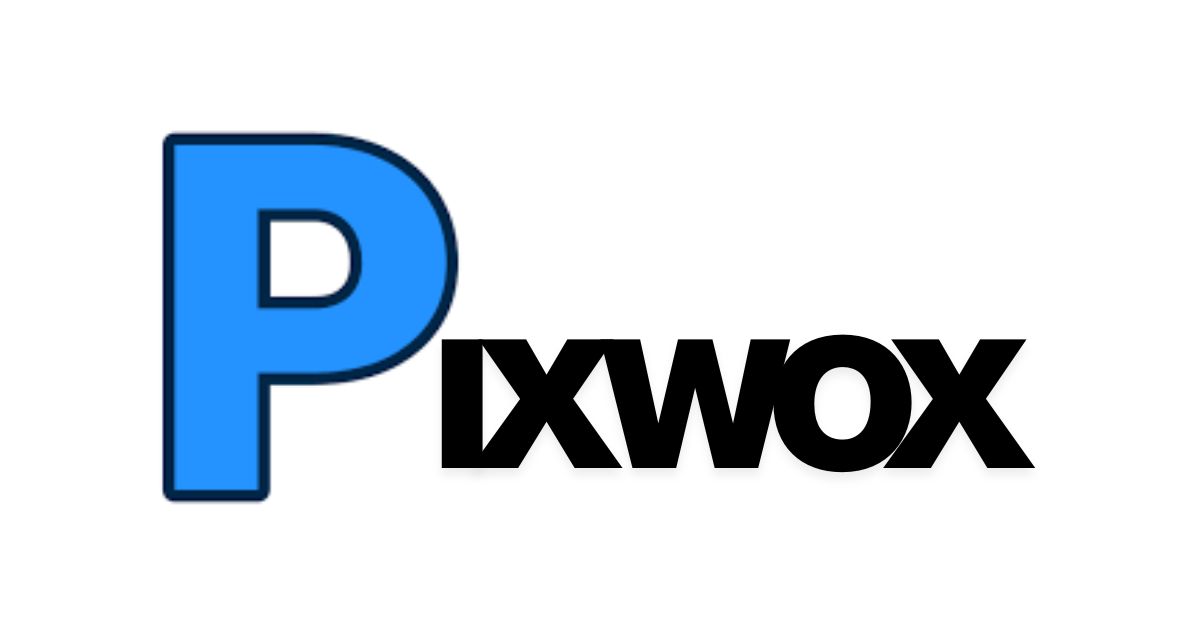
In a digital landscape saturated with images, finding truly captivating visuals can feel like searching for a needle in a haystack. We scroll through endless feeds, yet often come away uninspired, overwhelmed by a sea of repetitive content. This is where a platform like Pixwox enters the picture, offering a fresh approach to visual discovery. It aims to cut through the noise and connect users with imagery that resonates on a deeper level. The need for a curated, intuitive space for visual inspiration has never been greater for creators and enthusiasts alike. Pixwox seeks to answer this call by providing a streamlined and engaging experience. It is more than just another image repository; it is a tool designed to spark creativity and fuel new ideas. Let’s delve into what makes this platform a noteworthy destination for anyone who works with or simply appreciates powerful visuals.
What is Pixwox Exactly?
At its heart, Pixwox is a sophisticated platform dedicated to the aggregation and curation of high-quality images from across the web. It functions as a centralized hub where users can explore a vast and ever-growing collection of visuals tagged and organized for easy discovery. The service leverages intelligent algorithms and perhaps a layer of human curation to surface content that is both relevant and aesthetically pleasing. Unlike generic search engines that return every possible result, Pixwox prioritizes quality and artistic merit, saving users valuable time and effort. It serves a diverse audience, from graphic designers and marketers to bloggers and hobbyists seeking that perfect picture. The core mission appears to be simplifying the journey from a spark of an idea to finding the perfect visual representation.
The Core Problem Pixwox Solves
The primary challenge in the digital visual space is the paradox of choice; with millions of images available, selecting the right one becomes a paralyzing task. Generic platforms often deliver low-quality, overused, or irrelevant results that do not meet professional standards. This forces creators to spend hours sifting through unsuitable options, which hampers productivity and stifles creative momentum. Pixwox directly addresses this pain point by implementing a robust filtering and categorization system that elevates superior content. It effectively reduces the cognitive load on the user, allowing them to focus on interpretation and application rather than tedious searching. By solving the discovery problem, the platform empowers users to work more efficiently and creatively.
Key Features and User Interface
Navigating Pixwox is a deliberately smooth and intuitive experience, characterized by a clean, minimalist interface that puts the visuals front and center. The search functionality is powerful, allowing for keyword searches combined with advanced filters for color, orientation, and style. Users can create personalized collections or boards to save and organize their favorite finds for future projects, a vital feature for ongoing work. The platform likely offers high-resolution previews and detailed information about each image, streamlining the selection process. Its responsive design ensures a consistent and enjoyable experience whether accessed from a desktop computer or a mobile device. Every aspect of the interface is designed to facilitate a seamless flow from discovery to download.
Who Benefits Most from Using Pixwox?
The utility of Pixwox spans a wide spectrum of users, but it holds particular value for creative professionals who rely on visuals daily. Graphic designers and art directors can use it to gather mood boards and find inspiration for their next campaign. Digital marketers and social media managers will find it invaluable for sourcing engaging content that boosts audience interaction and brand presence. Bloggers and writers can easily locate compelling featured images and illustrations to complement their written work. Even educators and students can leverage the platform to find high-quality imagery for presentations and educational materials. Essentially, anyone who needs to communicate an idea visually will find a powerful ally in Pixwox.
How Pixwox Stands Out from the Crowd
What truly differentiates Pixwox in a competitive market is its unwavering focus on curation and quality over sheer volume. While other services might boast about having billions of images, Pixwox seems to prioritize a selectively chosen library where each entry holds value. The user experience is another significant differentiator, with a design that feels less cluttered and more purpose-driven than many of its counterparts. Its algorithm for suggesting related images and discovering new artists appears finely tuned to foster genuine inspiration rather than just displaying popular content. This commitment to a superior, human-centric discovery process creates a unique niche for the platform. It is not just a tool; it is a curated digital gallery.
The Technology Behind the Platform
The seamless operation of Pixwox is underpinned by robust and intelligent technology. Advanced image recognition algorithms automatically tag uploaded content with remarkable accuracy, describing subjects, colors, and composition. Machine learning plays a crucial role in personalizing the user experience, analyzing individual behavior to refine and improve content recommendations over time. The platform’s infrastructure is built to handle rapid indexing of new images, ensuring the library remains current and expansive. A sophisticated content delivery network ensures that images load quickly and reliably for users across the globe. This complex technological foundation works invisibly to create the simple, powerful experience users enjoy on the surface.
Integrating Pixwox into Your Workflow
Incorporating Pixwox into a daily creative or professional routine is a straightforward process that can yield significant efficiency gains. Many users start their day by browsing trending collections on the platform to gather inspiration and set a creative tone. For specific projects, the powerful search and filtering tools allow for quick pinpointing of assets that match a predefined art direction or mood. The ability to create and share private boards makes it an excellent tool for team collaboration, allowing members to collectively curate visual references. Browser extensions, if available, could further streamline the process by allowing users to save images from anywhere on the web directly to their Pixwox account. This integration transforms it from a standalone website into a central component of the creative workflow.
The Importance of Visual Content Today
In our current media environment, high-quality visual content is no longer a luxury; it is an absolute necessity for effective communication. Studies consistently show that content with relevant images receives exponentially more views and engagement than text-only counterparts. Visuals help to break down complex information, evoke emotions, and create a lasting impression on the audience. For brands, a strong visual identity is critical for building recognition and trust in a crowded marketplace. Platforms like Pixwox are therefore essential because they provide access to the raw materials needed to build that identity and tell compelling stories. The ability to quickly find and utilize striking imagery is a key competitive advantage in nearly every field.
Potential Challenges and Considerations
While powerful, using any curated platform comes with certain considerations that users should keep in mind. One primary aspect is understanding the licensing and usage rights associated with each image, ensuring compliance to avoid legal issues. The curated nature of Pixwox, while a strength, might sometimes mean a slightly smaller pool of results for extremely niche or obscure search queries compared to the entire open web. Users must also develop a critical eye to ensure the visuals they select authentically represent their message and do not veer into cliché. As with any platform that relies on algorithms, there is a potential for a filter bubble, where users see only content similar to what they have already liked. Being aware of these points allows for a more informed and effective use of the service.
Conclusion
Pixwox emerges as a significant player in the realm of visual discovery by masterfully balancing technological power with human-centric design. It successfully addresses the modern dilemma of visual overload by providing a curated, quality-focused, and intuitive platform. For creatives and professionals across industries, it offers more than just access to images; it provides a pathway to inspiration and enhanced productivity. By streamlining the search process and fostering a community around visual appreciation, it adds genuine value to the creative process. As the demand for compelling visual content continues to grow, tools like Pixwox will become increasingly indispensable. It represents a thoughtful and effective solution for anyone looking to navigate the vast digital visual world with clarity and purpose.
Frequently Asked Questions
Is Pixwox a free platform to use?
Pixwox likely operates on a freemium model. Basic discovery and browsing are probably free, while access to high-resolution downloads and advanced features may require a subscription.
What types of images can I find on Pixwox?
You can discover a wide array of images, including photography, vector graphics, digital art, and thematic compositions, all categorized for easy searching across numerous genres and styles.
How does Pixwox ensure the quality of its content?
Quality is maintained through a combination of algorithmic curation that promotes high-engagement content and possibly human editors who oversee featured collections and trending pages.
Can I use Pixwox images for commercial projects?
Usage rights vary per image. You must check the specific license attached to each asset on Pixwox, as some are for commercial use while others may have restrictions.
Do I need to create an account to use Pixwox?
While you can likely browse without an account, creating a free account is necessary to access core features like saving images to boards, liking favorites, and receiving personalized recommendations.
Entertainment
Echostreamhub: Unifying Your Digital Media Playback
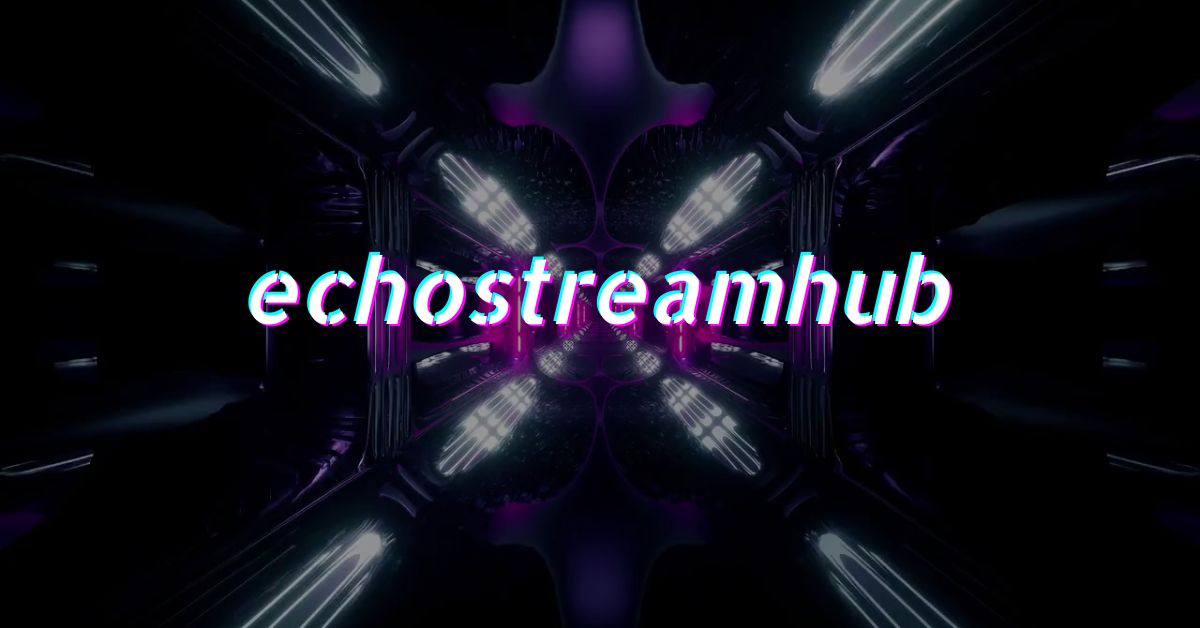
The modern media landscape is a fragmented experience, with our favorite music, podcasts, and videos scattered across a dozen different apps and subscriptions. Juggling these platforms has become a daily frustration, interrupting the flow of entertainment with constant switching and clunky workflows. A new solution is emerging to tackle this digital dissonance, aiming to weave these disparate threads into a single, coherent tapestry. This is where the concept of Echostreamhub enters the conversation, proposing a centralized command center for your auditory and visual life. It is not another streaming service but a unified interface designed to bring all your existing subscriptions together. The goal is to end the app-hopping and create a seamless, personalized media journey.
What is Echostreamhub?
Echostreamhub is best understood as a unified media aggregation platform. Its core function is to integrate with the various streaming services you already use, such as Spotify, Apple Music, YouTube, Netflix, and podcast apps, creating a single, cohesive library from all of them. Instead of having five different icons on your home screen, you would have one Echostreamhub app that knows what you watch and listen to everywhere. It acts as a meta-layer over your digital entertainment, offering a unified search, a single queue, and a consistent user experience regardless of the content’s original source. This approach acknowledges that our tastes are eclectic and not confined to a single provider’s walled garden.
The Core Integration Technology
The magic behind Echostreamhub lies in its sophisticated use of application programming interfaces, or APIs. These are the digital handshakes that allow different software to communicate with each other securely. Echostreamhub establishes approved connections with other major platforms through these APIs, allowing it to request and display your personal libraries, playlists, and recommendations. It does not store your music or movies itself, but rather fetches that information from the source services with your permission. This technical foundation is what enables you to see your Spotify playlists sitting right alongside your saved YouTube videos and your Audible audiobooks in one clean list.
Key Benefits of a Unified Platform
Adopting a hub like Echostreamhub delivers several immediate advantages that enhance your daily media consumption. The most significant is the sheer convenience of having one destination for all your entertainment needs, which saves time and reduces digital friction. It also powerful for discovery, as the platform can analyze your combined listening and viewing habits across services to recommend a podcast from one app or a documentary from another that you might have missed. This holistic view can break down the discovery silos that individual platforms create, leading you to a wider and more diverse range of content that truly matches your interests.
Creating a Cohesive Personal Library
One of the most frustrating aspects of using multiple services is the fragmentation of your personal collection. Your “favorites” are split into several lists, making it hard to get a full picture of what you love. Echostreamhub solves this by creating a master library that compiles everything. You can build playlists that contain songs from Apple Music, soundscapes from YouTube, and interview clips from a podcast app without any conversion needed. This ability to mix and match content from different sources empowers you to create truly personalized media experiences that were previously technically impossible or required tedious manual work.
How It Transforms Content Discovery
Discovery algorithms on individual platforms are good, but they are limited to the data within their own ecosystem. Your Netflix recommendations only know what you watch on Netflix, ignoring the fact that you primarily listen to history podcasts on another app. Echostreamhub’s algorithm has a panoramic view of your tastes. If you consistently listen to 1980s rock and also watch documentaries about music history, it can intelligently suggest a new rockumentary on Amazon Prime or a classic artist bio on YouTube. This cross-pollination of data leads to suggestions that feel more insightful and personally curated because they are based on a complete picture of your media personality.
The Universal Search Function
The universal search bar is arguably Echostreamhub’s most practical feature. Instead of opening three different apps to find a specific movie or song, you type your query once. The platform then scours the catalogs of all your connected services and presents the results in a single, ranked list. It tells you which platform has the content, whether it’s included with your subscription, or if it’s available for rental. This eliminates the guesswork and wasted time spent hopping between apps to locate one piece of content, effectively making the entire digital media universe searchable in one place.
Seamless Playback Across Your Devices
A true unified platform must offer a consistent experience wherever you are. Echostreamhub achieves this with dedicated apps for your phone, tablet, computer, and smart TV. The state of your playback is synchronized across all devices through the cloud. You can start watching a movie on your living room TV, pause it, and then resume from the exact same moment on your tablet during your commute. This device-agnostic approach extends the convenience of a single interface to your entire technological ecosystem, making your media truly fluid and adaptable to your lifestyle rather than tethered to a single screen.
Addressing Privacy and Data Security
Any service that aggregates so much personal data rightly raises questions about privacy and security. A reputable Echostreamhub would operate on a principle of data minimization, using tokens and encrypted connections to manage your integrations without storing sensitive login information. Your detailed listening history might be processed on your device to generate recommendations rather than being sent to a central server. Transparency about data usage and giving users precise control over what is shared are fundamental to building the trust necessary for people to consolidate their digital lives within one application.
Potential Challenges and Considerations
No platform is perfect, and Echostreamhub would face its own set of challenges. Its functionality is entirely dependent on the cooperation of other streaming services, which could revoke API access or limit features at any time. There might also be a slight performance overhead, as requesting data from multiple sources can sometimes feel less instantaneous than using a native app. Furthermore, convincing users to adopt yet another app, even one designed to simplify their experience, requires demonstrating immediate and undeniable value. The success of such a hub is a delicate balance of technology, partnerships, and user adoption.
The Future of Integrated Media Consumption
The concept behind Echostreamhub represents a likely future for digital entertainment. As the number of content sources continues to grow, the value of a unified interface will only increase. We may see larger tech companies acquiring or building their own versions of such hubs directly into operating systems. The ultimate evolution could be a shift where we subscribe to aggregated content channels through a single platform, which then handles the backend licensing from various providers, fundamentally changing how we pay for and access media.
Conclusion
Echostreamhub is more than a convenient tool, it is a response to the increasing complexity of our digital diets. It proposes a smarter, more integrated way to manage the media we love, prioritizing a seamless user experience over platform loyalty. By bridging the gaps between our various subscriptions, it returns control and coherence to the consumer. While dependent on the evolving landscape of digital rights and partnerships, the vision it represents—a single, unified home for all your entertainment—is a compelling and logical next step in the evolution of how we play, pause, and discover.
Frequently Asked Questions
Do I still need my individual streaming subscriptions?
Yes, Echostreamhub requires active subscriptions to the services you want to integrate. It is a interface that plays the content you pay for elsewhere.
Is Echostreamhub available on smart TVs and game consoles?
Availability depends on development, but a full-featured platform would aim for broad compatibility across all major device categories, including TVs and consoles.
How does it handle different video and audio qualities?
The platform would typically stream content at the highest quality provided by the source service, such as 4K HDR video or high-fidelity audio, if your device supports it.
Can I share my integrated playlists with friends?
This depends on the sharing rules of the source platforms, but you could likely share a playlist, though your friends would need their own subscriptions to play the content.
What happens if a streaming service changes its API?
The Echostreamhub development team would need to promptly update its integration to maintain compatibility, ensuring a uninterrupted experience for users.
Entertainment
Layarkaca: Your Ultimate Portal to Film Magic
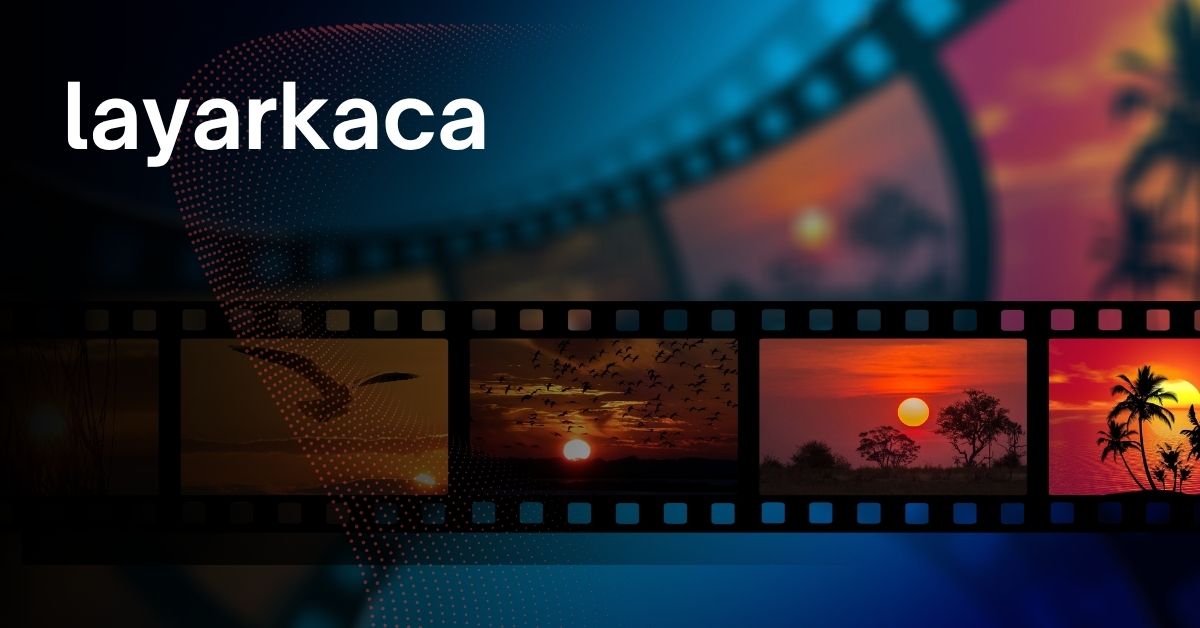
In an age where streaming platforms have become the primary cinema for many, finding a reliable and comprehensive hub for movie content can feel like a quest in itself. The digital landscape is fragmented, with films and shows scattered across numerous services, each with its own subscription fee and library. This is where a platform like Layarkaca steps in, carving out its unique space in the hearts of cinephiles. It serves as a centralized guide, a digital archive, and a community space for those who live and breathe motion pictures. For millions of users, it has become the first stop for discovering what to watch next and how to watch it. This exploration delves into the world of Layarkaca, examining its role and influence in the modern film ecosystem.
Understanding the Layarkaca Phenomenon
Layarkaca is best described as a multifaceted Indonesian online platform dedicated to everything related to movies and television series. It functions primarily as an extensive database, offering users detailed information about films, including synopses, cast and crew lists, trailers, and user reviews. Its core mission revolves around organizing the vast world of visual entertainment into an easily searchable and navigable format. The platform caters to a broad audience, from casual viewers looking for weekend entertainment to hardcore film buffs tracking a director’s entire filmography. By aggregating this data, Layarkaca saves users time and effort, cutting through the noise of the internet.
A Deep Dive into Its Core Features and Services
The utility of Layarkaca lies in its robust set of features designed to enhance the user’s movie discovery journey. At its foundation is a powerful search engine that allows users to find content by title, actor, genre, or even year of release. Each film and show has a dedicated page that acts as a one-stop shop for all relevant information, from critical ratings to trivia. Furthermore, the platform often provides crucial viewing information, such as which legal streaming services currently host the title. This eliminates the frustrating guesswork of hopping between apps to find a specific movie. The site’s design prioritizes functionality, ensuring that information is accessible with minimal clutter.
How Layarkaca Curates Its Vast Content Library
The process of building and maintaining such an extensive database is a continuous endeavor. Layarkaca relies on a combination of automated data aggregation from licensed sources and contributions from its vast user community. This collaborative model allows for rapid updates as new films are released and older titles are digitized. The curation is not just about quantity but also about quality and accuracy. Moderators and dedicated users work to ensure that plot summaries are correct, cast lists are complete, and the information presented is reliable. This communal effort creates a living, breathing resource that reflects the collective knowledge of its audience.
The Evolution of Digital Film Platforms
Layarkaca emerged as a response to a specific moment in cinematic history: the transition from physical media to digital consumption. As DVDs declined and online streaming rose, audiences needed new ways to navigate the expanding digital universe. Platforms like Layarkaca filled the void left by traditional movie guidebooks and video rental stores. They evolved from simple listing sites into interactive hubs that facilitate discussion and discovery. This evolution mirrors a broader shift in how we relate to media, moving from passive viewing to active participation. These platforms have become integral to the film culture, shaping how we choose, critique, and celebrate what we watch.
Navigating the User Experience with Ease
A significant factor in Layarkaca’s popularity is its intuitive user interface. The website is designed for straightforward navigation, allowing users to filter searches with remarkable precision. You can easily narrow down results to a specific decade, a particular country of origin, or a sub-genre like “cyberpunk” or “rom-com.” This logical structure empowers users to explore cinema based on their mood or interest without feeling overwhelmed. The clean layout puts the information front and center, minimizing distractions and focusing on the content. This thoughtful design demonstrates an understanding that a user’s journey should be as enjoyable as the movie they eventually select.
The Social Aspect of Movie Discovery
Beyond being a database, Layarkaca thrives as a social platform where users can share their opinions and recommendations. The review and rating system allows every member to voice their perspective, creating a rich tapestry of critical and public opinion. Reading through user reviews can offer insights that professional critiques might miss, providing a more grounded view of a film’s reception. This social layer transforms the act of choosing a movie from a solitary decision into a communal experience. It fosters a sense of connection among users who discover they share similar tastes, building a virtual community of film lovers.
Balancing Information with Legal Viewing
A critical and commendable aspect of Layarkaca’s modern operation is its emphasis on directing users toward legal and licensed streaming options. By clearly displaying where a film can be legally streamed or rented, the platform acts as a responsible guide within the digital ecosystem. This practice supports the creative industry by steering audiences toward services that compensate rights holders. It positions Layarkaca not as a competitor to streaming sites, but as a valuable partner that helps viewers navigate the legitimate market. This ethical approach ensures the platform’s sustainability and aligns its success with the health of the broader film industry.
How Layarkaca Stays Relevant in a Competitive Market
In a market dominated by global giants, Layarkaca maintains its relevance by focusing on a hyper-localized experience and community-driven content. While international databases exist, Layarkaca offers a context that is specifically tailored to its Indonesian audience, including local reviews and relevant availability. Its agility and deep connection with its user base allow it to adapt quickly to changing trends and consumer behaviors. The platform’s commitment to being a comprehensive, user-first resource, rather than just a commercial enterprise, fosters strong loyalty. This dedicated focus ensures it remains a go-to resource even as the digital landscape continues to shift.
The Future of Film Aggregation Platforms
The future for platforms like Layarkaca is likely to involve greater personalization and integration. We can anticipate more sophisticated recommendation algorithms that learn from individual user ratings to suggest hidden gems. Integration with streaming services may become more seamless, potentially allowing users to launch a film directly from the Layarkaca interface. As virtual and augmented reality technologies develop, there could even be immersive ways to explore film history and data. The core principle, however, will remain the same: cutting through the overwhelming choice to connect people with the stories they will love. Layarkaca’s evolution will continue to reflect the changing ways we discover and engage with visual media.
Conclusion
Layarkaca has successfully established itself as an indispensable tool in the modern cinephile’s arsenal. It transcends the basic function of a search engine by weaving together information, community, and accessibility into a single, cohesive experience. The platform demonstrates that in the digital age, the value is not only in hosting content but in expertly curating the pathway to it. By reducing friction in the discovery process and fostering a shared space for discussion, Layarkaca enriches the entire movie-watching journey. It stands as a testament to the idea that the love for film is as much about the conversation and the search as it is about the viewing itself. In doing so, it ensures that the magic of cinema remains easily accessible to all.
Frequently Asked Questions
What is Layarkaca primarily used for?
Layarkaca is primarily used as a comprehensive database for finding detailed information about movies and TV shows, including where to stream them legally.
Is there a cost to use the Layarkaca platform?
Typically, access to the Layarkaca information database is free for users, as it is supported by advertising.
How does Layarkaca differ from a streaming service?
Layarkaca does not host or stream video content; it acts as a guide that provides information and directs users to legal streaming platforms.
Can users contribute to the content on Layarkaca?
Yes, many platforms like Layarkaca have community features that allow users to submit reviews, ratings, and help update film information.
How accurate is the streaming availability information?
The platform strives for accuracy, but streaming rights change frequently, so it’s always a good idea to double-check on the streaming service itself.
-

 Sports9 months ago
Sports9 months agoThe Ultimate Guide to Ski and Snowboard Equipment, Ski Equipment Rental, and Snowboard Equipment Rental
-

 General12 months ago
General12 months agoStart-094: Unlocking Its Secrets and Understanding Its Power
-
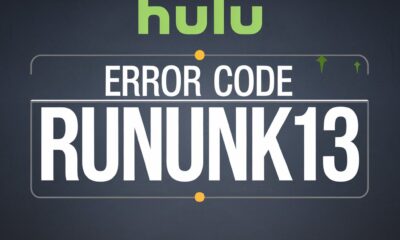
 Entertainment1 year ago
Entertainment1 year agoHulu Error Code Rununk13: A Complete Guide
-

 Entertainment11 months ago
Entertainment11 months agoSoaper.tv: A Comprehensive Guide to Your Streaming Companion
-

 General9 months ago
General9 months agoWindstream Email: Features, Setup, and Troubleshooting
-

 Technology1 year ago
Technology1 year agoWhy SBCodez is the Go-To Resource for Aspiring Coders
-

 Games10 months ago
Games10 months agoPizza Edition Games: The Ultimate Guide to Fun and Flavor
-
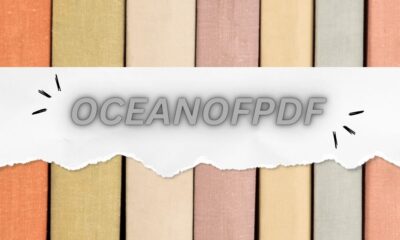
 Uncategorized10 months ago
Uncategorized10 months agoOceanofPDF: Free eBooks Source or Copyright Violation?
